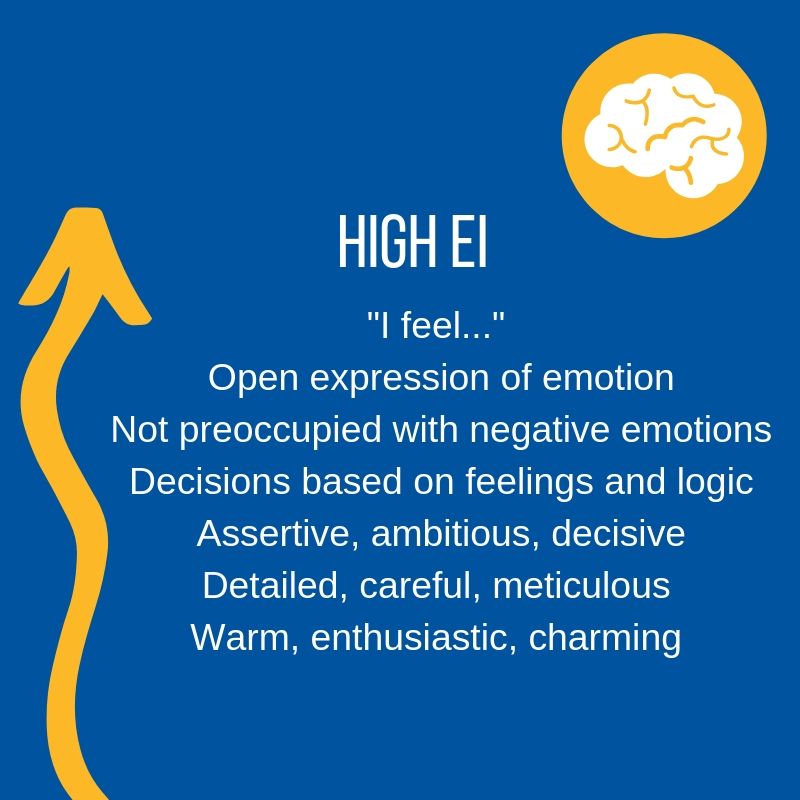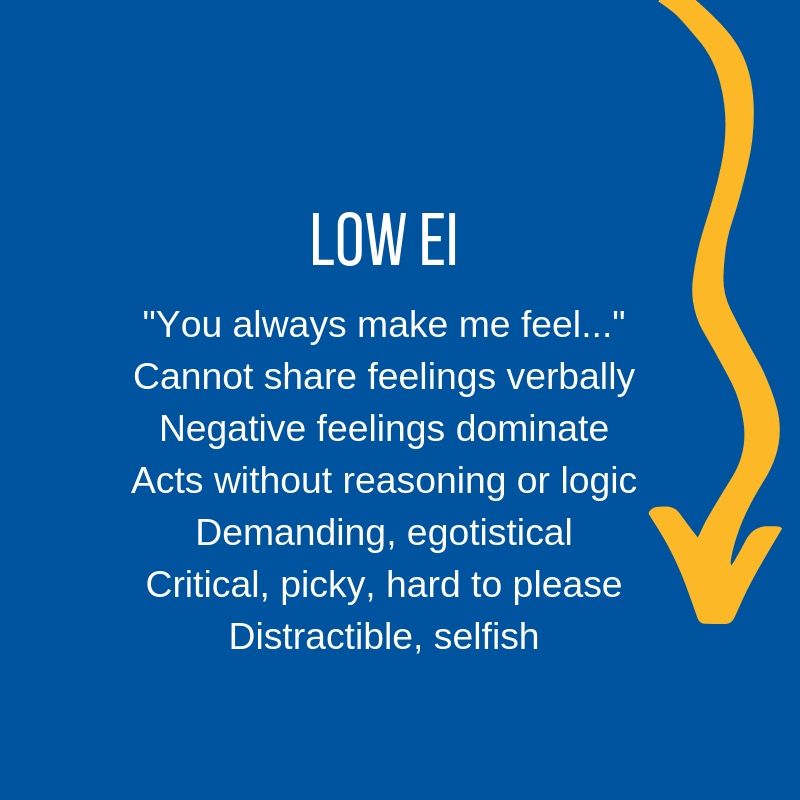
Job pressure. Money. Relationships. Politics. These are some of the top causes of stress, something we all experience and can affect our mental health. We can't change all the circumstances that cause our stress, however we can become more aware of the indicators of stress and how we can begin to manage our stress effectively. It starts with improving our emotional intelligence.
Emotional Intelligence, or EI, is the ability to recognize and understand emotions in oneself and others.
For years, we've heard how we need to see things from someone else's perspective or have empathy to another's circumstances. This is hard to do if you are unaware of your own stressors and how to self-regulate. Improving your emotional intelligence can assist you in managing stress, building strong relationships, empathizing with others, and achieving goals. In the workplace, you can assess and affect situations and relationships more effectively, cope with pressures, demands and stress, and navigate and negotiate conflict.
Our emotional intelligence affects how we relate to others, including how we manage and lead. Here are some characteristics of people with High and Low EI:


How do we improve our emotional intelligence?
First, we need to be aware of its components:
1. Self-Awareness
Being aware of different aspects of yourself, including your emotions and feelings. A self-aware individual can understand their emotions and not let their feelings rule them. They are confident, willing to take an honest look at themselves, and know their strengths and weaknesses.
How to improve your self-awareness:
- Ask a loved one how you respond to stress indicators. You may be surprised at what they say.
- Also ask yourself:
- How do your emotions influence how you respond?
- Do the things you are feeling have an impact on the decisions you make or how you interact with others?
- How well do you communicate with others? Do you get impatient, angry, or annoyed often?
- Do you need to improve upon how you’re coping with these frustrations?
- Are you taking responsibility for your actions?
2. Self-Regulation
The ability to control emotions and impulses. Individuals who self-regulate typically don’t allow themselves to become angry or jealous. They don’t make impulsive, careless decisions. They can pause and think before acting.
How to improve your self-regulation:
- Find ways to release stress, such as yoga, a mindfulness practice, taking a break, attending a support group, or talking to a counselor (such as through your workplace's EAP).
- Remind yourself you can't control everything.
- Give yourself permission to pause and to not make a rash decision, but rather one that is thoughtful and has looked at all the possibilities.
3. Social Skills and Empathy
Awareness of other people's emotions. An individual who has high EI is a team player, good listener, excellent communicator, able to manage conflict effectively and skilled in building and maintaining relationships and recognize feelings in others.
How to improve your social skills:
- Begin to look at a situation from another’s point of view or perspective in order to understand their behavior.
- Remember that an individual’s behavior is based on their self-needs, seen from their perspective.
- Explore the “why”; what may this individual be dealing with that I don’t see? Why do I feel differently than they do?
- Improve your listening techniques; to become empathetic you will need to hear what the individual is really saying.
- Provide non-judgmental support. When someone brings a concern or issue to you, don't judge but listen. If they ask for resources and support, that’s what you provide.
- Be willing to put other things to the side to be able to authentically connect.
4. Motivation
Understanding the deeper meaning of your aspirations; being committed and optimistic. An individual with high EI has a personal drive to improve and achieve, takes initiative, and is ready to take on a challenge.
How to improve your motivation:
- Ask yourself: What is the meaning of what you do? Without meaning, it will be difficult to sustain your motivation or energy.
- Journal or reflect upon what your purpose is, personally and professionally. Motivation is based on a deep level of what we want. Once we know our purpose – our wants – then we are motivated.
- Pay attention to what excites you, what gives you energy, and what refuels you.
- Look for a mentor or guide to emulate. Ask them what keeps them going. What provides them with the energy to take on the next day?
The Takeaway
Individuals who have higher EI are less likely to be negatively impacted by the presence of stressors. Improving your EI allows you to become more resilient and less likely to succumb to burnout and depression. High EI is correlated with psychological well-being.
Remember that it is not your job to fix or save people, to be liked, do it all, to please everyone, or to hold it together. Your job is to understand and love people, be authentic, take the next step, speak your truth, and breathe.




